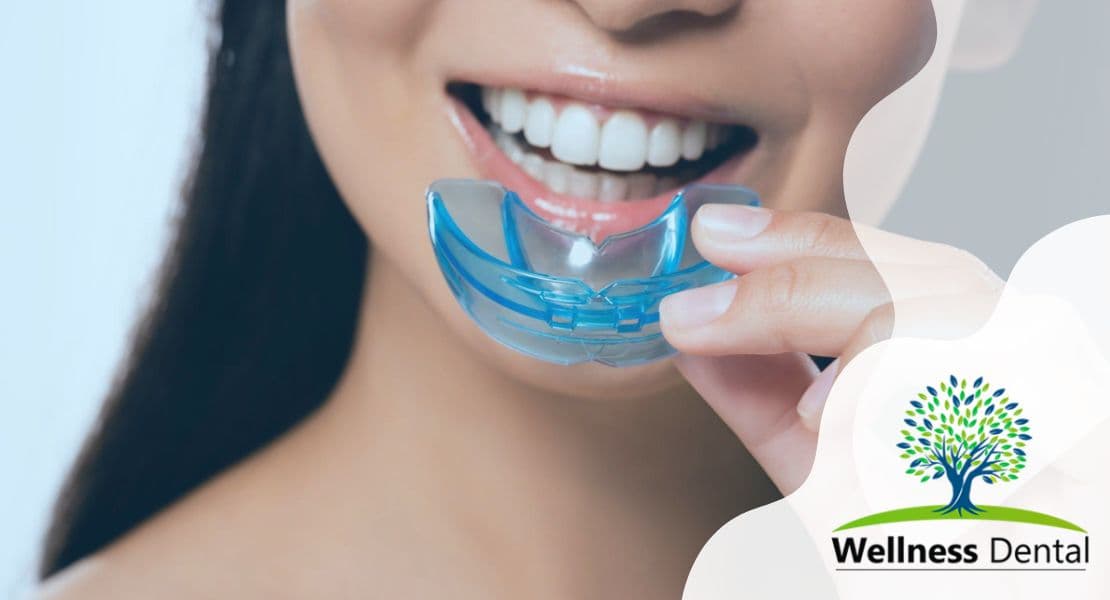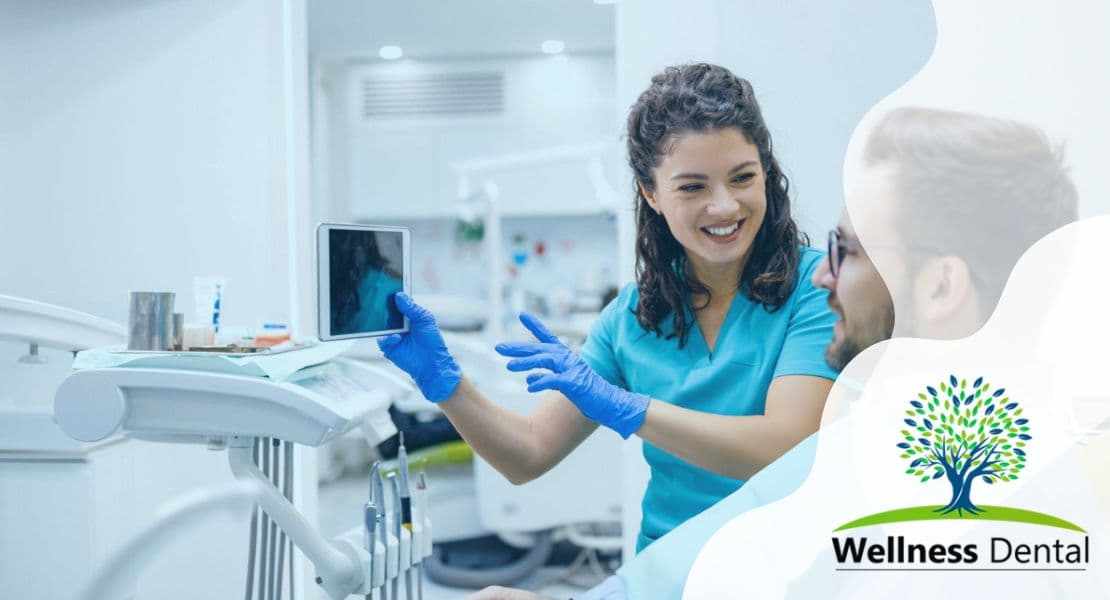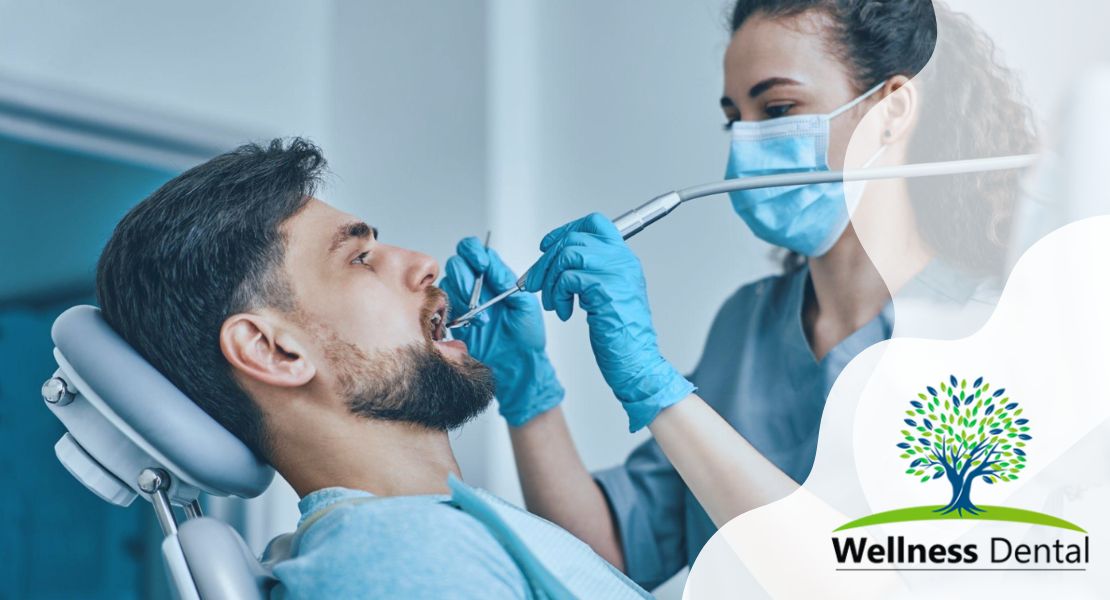What are oral probiotics?
Oral probiotics are live bacteria and yeasts specifically formulated to promote oral health when consumed or applied in the mouth. Such probiotics have been formulated precisely to achieving this. They aim to restore balance to the oral microbiome, reducing the levels of pathogens as well.
In contrast to gut probiotics, which primarily target digestive health, oral probiotics are tailored to support oral health. The main difference between the gut and oral probiotics lies in the way they are typically consumed. While the gut ones can be found either in capsules, yogurt, or water, the oral ones are usually in various types of lozenges, chewing gums, or toothpaste.
The lists of the possible positive outcomes of oral probiotics functioning are really impressive. Firstly, they keep that simple bacteria composition in a mouth and stop it from going out of control of only bad bacteria that can lead to bad breath, tooth decay, and periodontal disease.
Furthermore, oral probiotics can help reduce the risk of respiratory tract infections by inhibiting the growth of pathogenic bacteria, which can contribute to the development of such infections. More importantly, clinical studies have shown that some strains of the probiotic bacteria, for example, Streptococcus salivarius K12, could reduce the level of methyl mercaptan which is a component of bad breath.
It must be acknowledged that taking oral probiotics will not make one not observe the standard oral hygiene measures, which include: brushing, flossing, and regular visits to the dentist. Additionally, incorporating oral probiotics into a dental health care routine can promote the growth of beneficial bacteria and help reduce pathogenic bacteria.
Oral vs. Gut Probiotics

Oral probiotics and gut probiotics are two distinct categories that target different areas of the body. They are unique in the sense that they do not only consider the species, but also how they are delivered in a range of ways.
Gut probiotics are beneficial for digestive health because they are designed to support the gut microbiome. They either come with a combination of good bacteria (Lactobacillus and Bifidobacterium) known for taking care of intestinal health and others which can be added to adjust for different needs conditions. Hence, these probiotics are usually ingested orally, commonly in the form of capsules or tablets meant to be taken by mouth.
By the time they get into the gut, the bacteria can start colonizing and provide a variety of health advantages, including improved digestion, reduction of bloating, as well as motive the state of the gut.
Oral probiotics can contribute to maintaining a healthy oral microbiome, which is crucial for overall oral health. These much-needed probiotics are known for their natural presence in the mouth since they belong to the genera Streptococcus salivarius, Streptococcus oralis, and Lactobacillus acidophilus. It is the oral delivery method that in most cases involves chewable or dissolvable formats.
This is due to the fact that when probiotics from the rinsing mouthwash come into contact with the oral bacteria, they help to restore the balance of beneficial bacteria and inhibit the growth of the harm bacteria. Such modifications may bring a series of positive changes in oral health, which includes less bad breath, low risk of tooth decay and enhanced periodontal health.
However, the role of oral probiotics in improving oral health and the immunity of the mouth isn’t completely clear, as new research and clinical trials are testing their usages. There are also published studies exploring the potential applications of oral probiotics.
It has been found that oral probiotics may help reduce levels of pathogenic bacteria, there is a possibility that oral probiotics are responsible for pestering breath odor due to reducing the levels of volatile sulfur compounds which are the key element in producing methyl mercaptan, and prevention of respiratory tract infections.
What are the Best Probiotic Strains to Take?
Not only are probiotics beneficial to your health, but also many different types of probiotic strains can be taken, depending on your specific needs.
Properly, it works as follows. Introducing beneficial bacteria into the oral cavity through probiotics can be beneficial. The probiotic strains used in these formulas have shown the promising results they claim to; not only that, they can also counter problems that affect our oral health like cavities, gingivitis/periodontitis, oral thrush, bad breath, and tonsillitis.
Oral health can help to improve one’s dental microbiome balance through the use of the best probiotics strain, Streptococcus salivarius K12. This is one of the organisms whose genes have been investigated extensively, and it has demonstrated beneficial effects for preventing and treating oral illnesses (namely, dental caries and periodontal diseases).
It is has been identified as a bacteria inhibitor that stunts the growth of undesirable germs that can result into erosion and gingivitis, among others. Lack of reuteri is another health strain among the Lactobacillus species. This is a strain that does away with bad breath-causing bacteria and thus allows for preventing the onset of cavities.
In treating oral thrush, please consider using lactobacillus acidophilus and bifidobacterium bifidum. This idea focuses on incorporating bacterial strains that help restore the balance of the oral microbial environment while also controlling the overgrowth of Candida, the fungus that causes oral thrush.
Finally, Lactobacillus salivarius is also an example that provides treatment for tonsillitis. Recent studies have shown that its use, reduces recurrences of tonsillitis by 70 percent, and in some cases, completely avoiding more invasive treatments.
The Benefits of Dental Probiotics
To holistically support oral health and to avoid many oral diseases, dental probiotics are a very important part. The other major benefit of dental probiotics is their ability to stop all cavity cases. These probiotics consist of beneficial bacteria i.e. Streptococcus salivarius, which suppresses other bacteria within the mouth cavity and therefore decreases the rate of tooth decay.
In addition to that, the potential of dental probiotics indulges to treat gingivitis and periodontitis, two of the popular gum diseases. The good bacteria in probiotics will interfere with the growth of other likened harmful bacteria, which will in turn reduce the signs of inflammation and promote healthier gums while making it difficult for periodontal diseases to progress.
Fungal infections, such as oral thrush, pose significant challenges in oral health. Dental probiotics offer potential solutions to address these issues effectively. Therefore, these probiotics balance the change of microflora, decrease the increase of Candida and limit the possibility of yeast infection.
Moreover, oral probiotics can help alleviate halitosis or bad breath. By reducing the development of foul-smelling substances like methyl mercaptan, they are capable achieving this because they act as inhibitors for pathogenic bacterial growth. Therefore, they also stimulate freshness when it comes to breath and, on account of that, your teeth will definitely stand out.
Even more importantly, investigations have revealed that oral probiotics may have the ability to bring down the chance of respiratory infections, tonsillitis as well as oral cancer. The probiotics that hosts such beneficial bacteria are in support of a healthy immune response which, therefore, strengthens the body’s defenses against harmful pathogens.
What is the Typical timeframe for Oral Probiotics to take effect?
The duration of action of an oral probiotics diet for severe dysbiosis may vary. The duration of trials done on the effectiveness of this therapy also has an impact. Dysbiosis denotes a shift from the healthy state of abundant beneficial bacteria and a small number of harmful bacteria towards a balance more favorable to the harmful bacteria to exist in the oral cavity. In clinical trials, the clinical performance of probiotics in the restoration of oral health can be seen progressively within several weeks to several months from now.
The advised baseline oral probiotics treatment is normally in the area of 4 weeks up to 3 months. In the course of these sessions, patients may at first observe various signs of recovery like, e.g., a weakening of the different kinds of breaths, improvements in gums health, and decreasing of teeth decay. These acts represent the recognition that probiotics are inhabiting the oral cavity and reconciling the bad bacteria.
The positive effects of routine use of oral probiotics consist of restoration of oral health, inhibition of gum and periodontal diseases development, and a decrease in the risk of respiratory issues. Among those probiotics, lactobacilli strains are considered the most effective ones on dental health by way of producing lactic acid that has inhibitory effects on pathogenic bacteria growth.
Oral probiotics, in general, are tolerated well when taken over time, however, there may be some side effects. Probiotics are a class of live microorganisms that are ‘ good germs ‘ by nature and are thought to be safe to the body. Nevertheless, you need to address the issue of choosing a reliable brand and its instructions about the correct dosage. Some people might have an episode of mild digestive prosecution in the beginning, yet this subsides once the organism is used to probiotics in its system.
What is the best time to take oral probiotics – morning or night?
The question of either using probiotics in the morning or the night is a multifaceted one, since some points may have to be used as criteria for your decision-making process. To begin with, the idea the probiotics encompass is the one where the beneficial bacteria should be delivered to the oral cavity to combat the negative effects of the bad bacteria.
So, the time to take probiotics is when you have healthy mouth condition and doing all the oral-hygiene procedures. This is why the consumption of oral probiotics after brushing your teeth and flossing during the morning is been recommended by experts. Therefore, a healthy gut requires the colonization of the probiotic bacteria as well as the development of their suitable probiotic effects.
Moreover, consuming prebiotics in addition to oral probiotics helps in making this two effective strategy. It is important to note that prebiotics are compounds that supply probiotic bacteria with a source of nutrition, thereby helping their numbers reach their optimum level.
Probiotics may not be effective in the oral cavity if they do not receive adequate prebiotics. Thus, the effectiveness of the ‘oral probiotics’ will barely exist. Hence, consuming foods high in prebiotics, either naturally or in the form of supplements, and taking oral probiotics side by side is the best way to get optimum results.
Probiotic-Rich Foods for Oral Health

Probiotic Foods
Probiotic foods are one of the most healthful choices which are excellent for taking the benefits of oral probiotic capsules. Adding these foods into the daily diet can assist in the maintenance of a suitable number of beneficial bacteria in the oral environment, which, in turn, would prevent the overgrowth of unfavorable bacteria, that, ultimately, may result in issues such as bad breath, tooth decay, and periodontal disease.
Likewise, kombucha is a very notable probiotic food which is a fermented kind of tea drink. It has a bacteria and yeast culture that can be employed to enhance digestive health and make the oral microbiome better. Another is a well-known Korean side dish is kimchi, which consists of fermented vegetables. Kimchi which is rich in lactic acid bacteria is often beneficial in gum issues and dental cavities as well.
Yogurt is the same as the content of probiotic food that could augment the benefit of oral support for probiotics. One of its benefits is the probiotic lactobacilli, which support a healthy balance in the mouth and leads to good oral health. Moreover, miso, the Japanese seasoning used commonly in cooking and made from fermented soybeans and sauerkraut, which is a probiotic-rich food, cabbage fermented, can also support oral health.
It is possible to enhance the oral probiotic implementation process by incorporating these foods into the diet and, as a result, gradually introducing beneficial bacterial strains to the oral cavity. Probiotics are what will provide the live bacterias that are good for the health of the body, one of these areas is the mouth. Clinical studies have been conducted demonstrating that through the reduction of harmful bacteria, probiotics maintain a healthy oral environment and, thus, cut the risk of dentistry problems and other respiratory tract infections.
Information About the Side Effects of Dental Probiotics
Probiotics specific to dental health, which are those good bacteria that were specially designed to improve oral condition, have noticed a hike in demand because they might be helpful either in improving oral hygiene or in the fight against bad breath problems. However, like any dietary supplement, dental probiotics may have certain side effects that require consideration.
Just like any other supplement, mild dental probiotics’ side effects include upset stomach, diarrhea, bloating, and gas. It is also common to experience short-lived harmless symptoms as your body learns to favor helpful bacteria over harmful ones. Mild adverse effects from probiotics are common occurrences. If you have concerns about these effects, it’s advisable to consult a healthcare professional.
Although some people might not face the problem of an allergic reaction, there is still a low risk of them being allergic to dental probiotics. Moreover, people who happen to be allergic to any of the bacterial strains contained in the life expectancy improvement supplements would have symptoms like itching, rash, swelling, or breathing difficulties. When these are some symptoms, they deem it important to get rid of them and seek medical attention.
At the same time, if there are any undesirable side effects, one thing that should be remembered is the fact that the benefits of dental probiotics in maintaining oral health are superior to the side effects always. On the other hand, patients are advised to consult with a healthcare provider before beginning any probiotic therapy, especially if it is currently suffering from some preexisting health conditions or has an immune system that is compromised.






